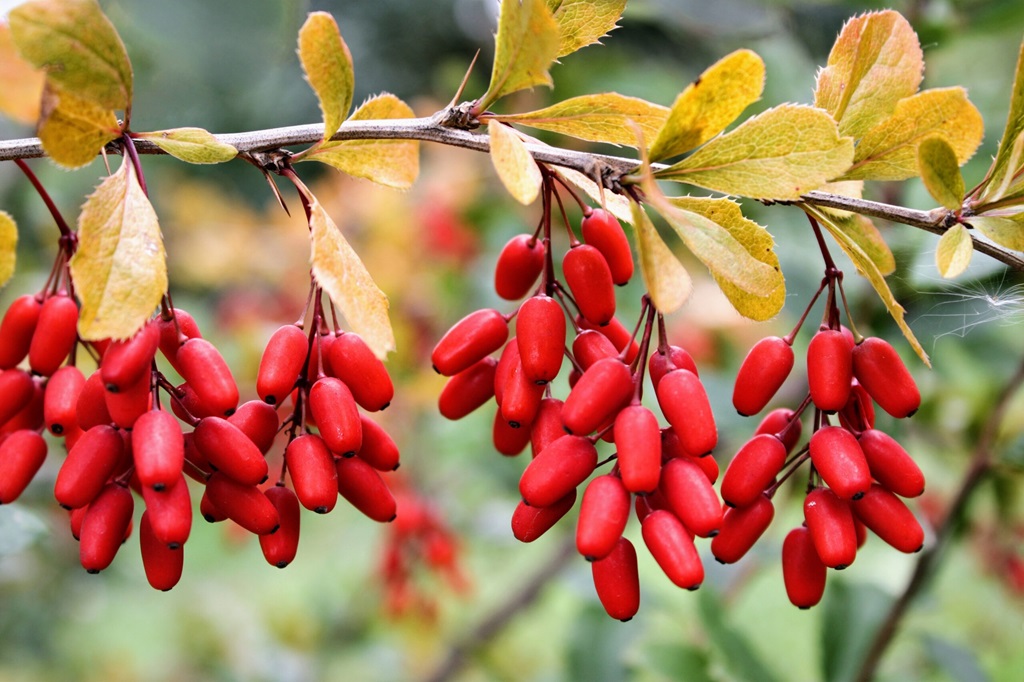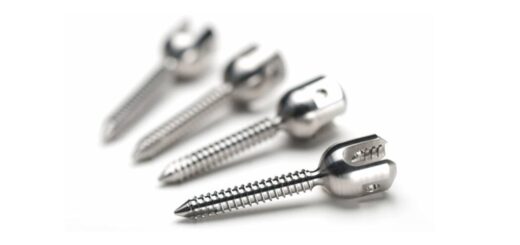Best Natural Remedies for PCOS
Polycystic ovary syndrome (PCOS) is a common hormonal disorder that affects women of reproductive age. Characterized by irregular periods, excess androgen levels, and ovarian cysts, PCOS can cause frustrating symptoms like acne, excess hair growth, infertility, and weight gain.
While there’s no cure for PCOS, lifestyle changes and natural remedies can help manage symptoms and improve overall health. In this comprehensive guide, I’ll share the top natural remedies for PCOS that can be incorporated into a holistic treatment plan.
Understanding PCOS
Let’s start with a quick overview of PCOS. This complex condition is linked to hormone imbalances and insulin resistance. Women with PCOS often have:
- Irregular or missed periods
- Higher levels of androgens like testosterone
- Ovarian cysts
- Difficulty getting pregnant
- Symptoms like acne, hair growth, and weight gain
The exact causes are still unclear, but genetics, inflammation, and insulin resistance appear to play a role. While PCOS can’t be cured, the symptoms can be managed through lifestyle approaches like:
- Diet changes
- Exercise
- Stress management
- Targeted supplements and herbs
When combined with conventional treatment, these natural remedies can help restore hormone balance, regulate periods, relieve symptoms, and lower long-term risks.
Lifestyle Changes for PCOS
Making positive changes to your daily habits is the foundation of natural PCOS treatment. Small consistent changes to diet, activity levels, and stress can improve insulin sensitivity, inflammation levels, and androgen levels.
Follow a PCOS-Friendly Diet
Diet has a big influence on PCOS. Eating a balanced diet that stabilizes blood sugar and controls insulin is key. Here are some diet tips:
- Choose low GI foods: Go for foods with a low glycemic index like non-starchy veggies, nuts, seeds, legumes, and lean proteins. These foods help control blood sugar spikes.
- Increase fiber intake: Aim for at least 25-30 grams of fiber per day from foods like beans, lentils, veggies, fruits, and whole grains. Fiber slows digestion and reduces insulin spikes.
- Limit added sugars: Avoid sugary drinks, desserts, and processed carbs with added sugars, which rapidly raise blood sugar levels.
- Watch portions: Portion control can help achieve or maintain a healthy weight, which improves PCOS symptoms.
- Avoid trans fats: Cut out fast food and commercially baked goods made with unhealthy trans fats, which trigger inflammation.
- Eat enough protein: Include a source of lean protein with each meal and snack to help keep you full and blood sugar balanced.
- Take a probiotic: Probiotic foods like yogurt, kefir, and kimchi support gut health and may help reduce inflammation.
Following a nutritious anti-inflammatory diet tailored for PCOS can make a noticeable difference in symptoms like irregular periods, acne, and weight management.
Exercise Regularly
Regular exercise is vital for regulating menstrual cycles and promoting weight loss in women with PCOS. Aim for 150 minutes of moderate activity per week, like brisk walking, cycling, swimming, or aerobics classes. Strength training 2-3 times a week also helps improve insulin sensitivity.
Even when weight loss is not the goal, exercise has a beneficial effect on balancing hormones and ovulation. Moving your body regularly can reduce inflammation, lower androgen levels, and stabilize mood as well. Start slowly and work exercise into your routine.
Manage Stress Levels
Chronic stress can worsen PCOS symptoms by triggering inflammation and raising cortisol and androgen levels. Make time for stress-busting habits like yoga, meditation, deep breathing, journaling, or spending time outdoors. Getting enough sleep also helps control cortisol levels.
Evaluating your priorities and letting go of perfectionism can reduce anxiety. Make self-care and fun activities a regular part of your routine to lower stress. Seeking support from friends, family, or a therapist may also help.
Herbal Supplements for PCOS
Certain herbs and botanicals have beneficial effects on hormonal health in women with PCOS. Herbal supplements should always be discussed with your doctor first and can interact with medications or other herbs. Here are some of the top herbal home remedies to consider:
Spearmint Tea
Spearmint tea has anti-androgenic properties that may help balance hormones in PCOS. Drinking spearmint tea once or twice daily may help reduce excessive hair growth, acne, and male-pattern hair loss caused by high testosterone levels.
Spearmint tea may also support weight loss efforts when combined with diet and exercise. Avoid drinking excessive amounts of this tea. Have 1-2 cups per day to benefit from its anti-androgenic effects.
Saw Palmetto
Saw palmetto is an herb that blocks the conversion of testosterone into DHT, a more potent form of testosterone that causes hair growth. Taking saw palmetto supplements may help reduce excess facial and body hair growth, male pattern baldness, and hormonal acne.
Look for a standardized extract and take it as directed. Saw palmetto appears to be safe and well-tolerated when used appropriately. It may also have mild benefits for improving low libido and other signs of excess testosterone.
Maca Root
Maca root is a nutritional powerhouse that may help balance female sex hormones. Maca contains unique plant compounds called macamides that support hormone production and ovarian function.
Taking maca supplements may help regulate menstrual cycles, improve fertility, and reduce symptoms like acne or hair loss in women with PCOS. Maca also boosts energy levels and sexual function.
Look for gelatinized maca in powder or capsule form. Take 500-1000 mg daily for 8-12 weeks to feel the effects. Maca can be used long-term without dependence or side effects.
Cinnamon
Cinnamon helps control blood sugar and insulin levels, which makes it useful for managing PCOS symptoms. The antioxidant polyphenols in cinnamon reduce insulin resistance by increasing insulin sensitivity.
Taking cinnamon supplements or consuming 1-2 teaspoons of cinnamon powder per day may moderate blood sugar spikes and reduce androgen levels. This can help normalize menstrual cycles and ovulation.
Cinnamon may also support weight management and reduce inflammation levels when combined with a PCOS diet and active lifestyle.
Vitex (Chasteberry)
Vitex, also called chasteberry, is one of the most popular herbs used to balance female hormones. It works by increasing luteinizing hormone (LH) and modulating prolactin.
Taking Vitex regularly may improve ovulation issues, regulate periods, and alleviate PMS symptoms like breast pain, bloating, and mood swings. Many women with PCOS see positive effects on their cycles when taking Vitex long-term.
The usual dose is 200-400 mg per day of a vitex agnus castus supplement. Allow at least 3 months for best results. Vitex seems to be more effective when used continuously throughout the menstrual cycle.
Targeted Supplements for PCOS
Certain vitamins, minerals, and other supplements hold promise for improving PCOS by addressing hormone imbalance, insulin resistance, and inflammation. Always discuss adding supplements with your healthcare provider first. Here are some to consider:
Berberine
Berberine is a plant alkaloid that helps regulate insulin, glucose, and lipid metabolism. It also reduces androgen levels and systemic inflammation.
Taking 500-1500 mg of berberine daily may help normalize menstrual cycles, improve PCOS-related infertility, support weight loss, and reduce high testosterone levels. Berberine also lowers blood sugar levels.
Omega-3 Fatty Acids
Omega-3 fatty acids found in fish oil combat inflammation and provide cardiovascular benefits. Increased intake of foods or supplements may improve PCOS factors like insulin resistance, high androgens, irregular periods, infertility, and obesity.
Aim for 1000-2000 mg of EPA/DHA omega-3s daily. High-quality fish oil, krill oil, or algal oil work well. Adding omega-3-rich foods like salmon, walnuts, and flaxseeds can also help.
Chromium
Chromium is an essential mineral that enhances insulin function and glucose metabolism. Taking 200-1000 mcg per day may help reduce insulin resistance, regulate the menstrual cycle, and lower androgen levels in women with PCOS.
Improving insulin sensitivity with chromium supplements can aid weight loss efforts as well. Chromium picolinate is the most bioavailable form.
Vitamin D
Many women with PCOS are deficient in vitamin D, which can worsen symptoms. Optimal vitamin D levels support ovarian function and menstrual cycle regularity. Vitamin D also has anti-inflammatory effects.
Get your vitamin D levels tested first. If deficient, take 5000 IU daily, along with vitamin K2, to reach and maintain an optimal range. Taking vitamin D with a meal improves absorption.
Zinc
Zinc is vital for hormonal balance, immune health, and metabolism. Zinc deficiency is linked to menstrual problems, infertility, and PCOS. Taking 30-40 mg per day may help regulate menstrual cycles, improve PCOS-related infertility, and reduce androgen levels.
Natural Treatment Plan for PCOS
Managing PCOS requires an integrative approach that combines positive lifestyle changes, targeted supplements, and conventional medical treatment. Work with a healthcare provider to develop a personalized combo approach.
An effective natural treatment plan for PCOS may include:
- Diet changes: Follow a PCOS-friendly diet lower in carbs, sugar, and inflammation that helps control weight and balance blood sugar. Portion control is key.
- More activity: Get regular exercise to improve insulin sensitivity, burn fat, and balance hormones. Aim for 150 minutes per week minimum.
- Stress management: Prioritize relaxation, good sleep, social support, and self-care to lower cortisol and manage stress levels.
- Helpful herbs: Drink spearmint tea for anti-androgen effects. Take supplements like saw palmetto, maca root, vitex, and cinnamon for hormonal benefits.
- Targeted supplements: Add berberine, omega-3s, chromium, vitamin D, or zinc to improve PCOS symptoms and reduce inflammation.
- Conventional treatment: Medications like birth control pills or metformin are often used alongside natural approaches. Procedures like ovarian drilling may also help stimulate ovulation.
- Routine screening: Get regular checkups to monitor for long-term health risks like diabetes, heart disease, and uterine cancer. Report abnormal bleeding or pelvic pain immediately.
- Support groups: Join local or online PCOS support groups to learn from other women living with this condition. Share advice and stay motivated.
Be patient – it can take 3-6 months to see significant improvements in PCOS with natural therapies. Consistency is key.
Lifestyle Changes and Natural Remedies for PCOS: The Takeaway
While challenging, PCOS can be managed naturally with diet, exercise, stress relief, targeted herbs and supplements, and conventional medical care. There is no instant fix, but positive lifestyle changes and holistic remedies can help restore hormone balance, regulate cycles, relieve aggravating symptoms, and minimize future complications.
Commit to regular self-care, a PCOS-friendly nutrition plan, activity, and stress management. Be open to herbs, supplements, prescription medications or procedures if needed. Get routine checkups and lab work. And most importantly, don’t give up! It takes time to get this unpredictable syndrome under control.
With a thoughtful integrative approach, many women with PCOS successfully manage their symptoms, lower their risks for related health issues, and improve their overall well-being.
Frequently Asked Questions
Q: What diet is best for treating PCOS?
A: A low glycemic index diet that is moderate in carbs and higher in fiber and lean protein can help manage PCOS. Focus on whole, unprocessed foods and limit added sugars. Portion control is also important for weight management.
Q: Can losing weight naturally reverse PCOS?
A: Weight loss through diet and exercise can dramatically improve PCOS symptoms. Even a loss of 5% body weight can help restore regular menstrual cycles and ovulation.
Q: How can you reverse insulin resistance naturally?
A: Follow a low-carb diet, exercise regularly, take targeted supplements like berberine and cinnamon, and avoid inflammatory foods. Losing excess body fat also increases insulin sensitivity.
Q: What herbs are good for hormonal imbalance in PCOS?
A: Spearmint, saw palmetto, vitex, and maca root are some of the top herbs to try. They help modulate hormone levels and regulate menstrual cycles. Always check with your doctor first.
Q: Can inositol help treat PCOS?
A: Yes, inositol is a B vitamin that improves insulin sensitivity and fertility in women with PCOS. It assists ovulation and regulates menstrual cycles. The usual dosage is 2-4 grams per day.
Q: Does acupuncture help PCOS?
A: Some research indicates acupuncture may regulate menstrual cycles, improve hormone balance, and reduce inflammation levels in women with PCOS. It is considered a safe complementary therapy.

















